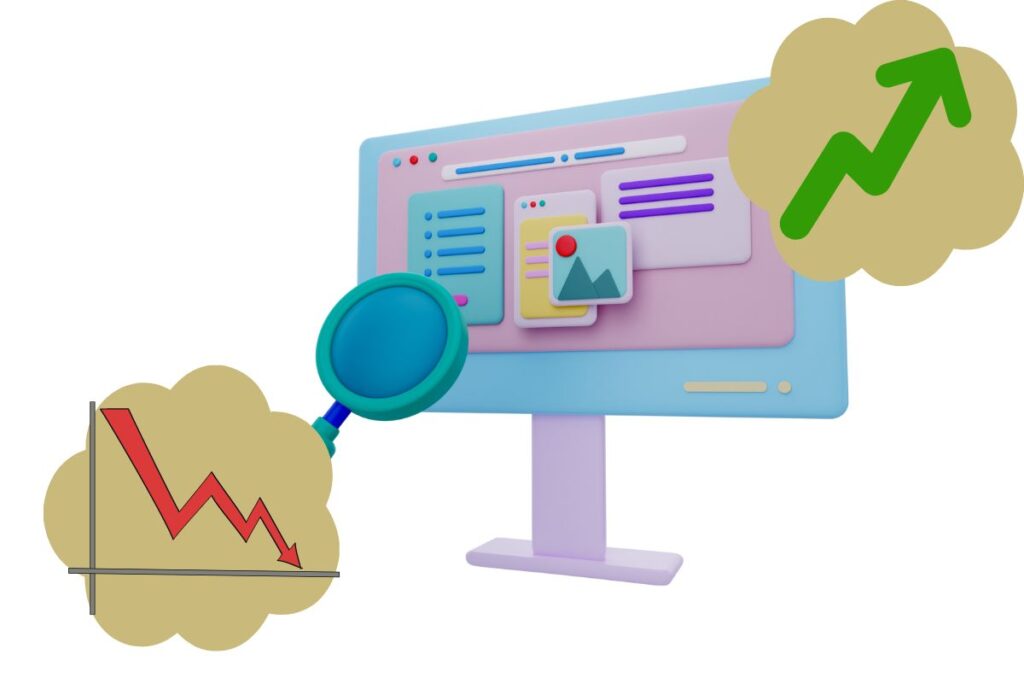The ever-evolving landscape of search engine algorithms can feel like a rollercoaster for website owners. You work tirelessly to create valuable content, optimize your site, and climb the search rankings, only to be thrown a curveball by a core algorithm update. Suddenly, your website traffic plummets, and you’re left wondering, “What went wrong?”
While the initial reaction might be to panic and desperately search for ways to “recover” your rankings, a more nuanced approach is necessary. Here’s why: Google’s core updates, including the “Helpful Content” update of March 2024, are multifaceted and don’t necessarily mean your content quality is lacking. Let’s delve into five key factors to consider when your website takes a hit after a core update:
1. Algorithmic Losses Aren't Permanent Scars

Unlike a penalty from Google for violating their webmaster guidelines, ranking drops due to core updates don’t carry a permanent black mark. Google’s Search Liaison, John Mueller, emphasizes that these updates focus on how their systems assess content – its helpfulness, reliability, and relevance to user queries. There’s no single “fix” you can implement overnight. However, by understanding the evolving nature of search and user expectations, you can take steps to improve your website and potentially regain lost ground in the future.
2. Reframing the Mindset: It's About Adaptation, Not Recovery
Recovering from a core update implies a desire to return to a previous state. In reality, these updates nudge websites towards continuous adaptation. Google aims to elevate content that aligns with the ever-changing web landscape and user demands. Instead of solely focusing on regaining past rankings, view this as an opportunity to analyze your content and website structure and make necessary improvements for a more user-centric approach.
3. The Intricate Dance of Thresholds and Ranking Formulas
John Mueller says core updates often involve ranking formulas and threshold adjustments. Imagine a ranking system as a complex equation with various factors influencing a website’s position. A core update might tweak this equation, potentially changing the thresholds required for a website to rank highly for specific keywords. It doesn’t necessarily mean your content quality has declined. It could mean that you need to adjust your optimization strategy to meet the new ranking criteria.
4. The Web and Users are Constantly Evolving
The web is a dynamic ecosystem, and user expectations are constantly in flux. What users considered “helpful content” five years ago might not be the standard today. Core updates often reflect this shift in user needs. The key is to stay informed about current search trends and user preferences. It might involve analyzing the top-ranking pages for your target keywords to see what content Google deems most relevant and valuable for those searches.
5. Page-Level Signals vs. Sitewide Focus
While the “Helpful Content” update emphasizes the importance of high-quality content on individual pages, it’s crucial to remember that Google also considers sitewide signals. It includes overall website structure, user experience, and technical SEO. So, while optimizing individual pages is essential, pay attention to the health of your entire website. Ensure optimal loading speed, straightforward navigation, and a mobile-friendly design to create a positive user experience.
Moving Forward: A Continuous Journey of Improvement
While core updates can be frustrating, they present a valuable opportunity for website owners. By understanding the multifaceted nature of these updates and the factors at play, you can shift your focus from regaining lost rankings to continuous improvement. Analyze your website’s content and structure, identify areas for enhancement, and adapt your strategies to align with evolving user needs and Google’s ever-changing algorithms. Remember, the journey to SEO success is a marathon, not a sprint. By embracing a growth mindset and consistently refining your website, you can position yourself for long-term success in the ever-evolving world of search.



